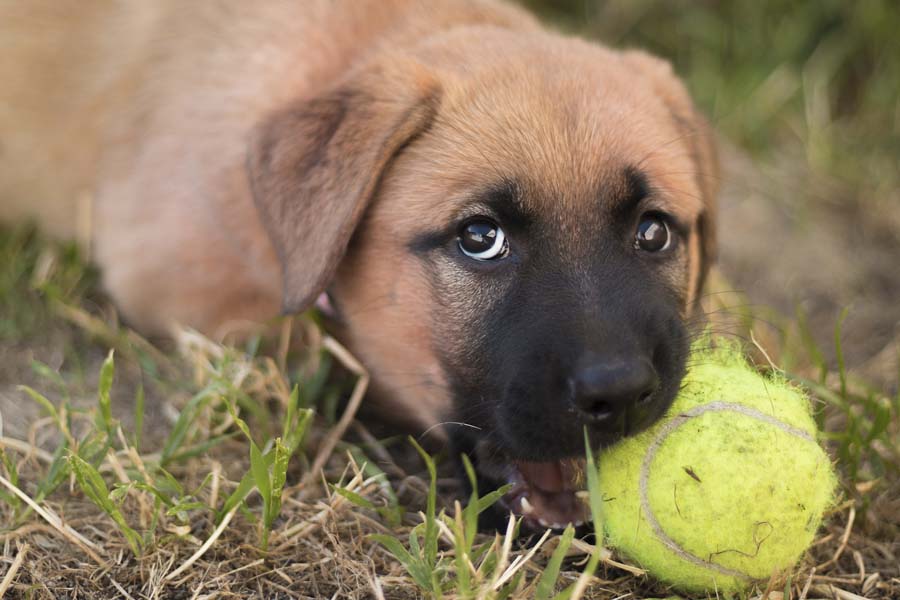A Turramurra Vet Pet Behaviour Article
‘If It is Within Reach, it is Mine to Chew!’ Managing Inappropriate Chewing through the Ages

‘If It is Within Reach, it is Mine to Chew!’ Managing Inappropriate Chewing Through the Ages
by Katie Bedrossian, Pet Behaviour Consultant
If you have ever had a puppy in your life, you would be aware that young puppies chew a lot, as their puppy teeth make way for adult teeth. However, did you know that there are five other reasons dogs chew? Have you ever scratched your head in confusion over why your 12-month-old dog is still chewing?
Read on to find out why dogs chew and how to manage it.
Dogs chew because:
- Teething: Dogs lose their puppy teeth and gain adult teeth between 12 weeks and 6 months of age. Chewing related to teething often starts at 10 weeks, as there are approximately 2 weeks of change (pressure and discomfort) prior to those the teeth breaking through the gums.
- Relaxation (commonly seen up to 18 months of age):Dogs will chew to calm and relax themselves when overexcited, frustrated, or stressed (some more than others). Chewing releases endorphins, and the act of it gives an emotional release.
- Investigation: Many dogs will investigate novel items by chewing them. They use chewing to explore the smell and texture of these items, as well as the density and feel under certain jaw pressures.
- Attention seeking: If a dog has received attention when chewing on an item in the past, then they will often seek out this item to increase the attention they get. Attention can be negative (verbal reprimands and moving towards your dog) or positive (a casual glance or ‘Hey Buddy, what have you got there?’ said in a light observational tone).
- High value association: By giving attention (negative or positive) to the dog when they are chewing on an item, we inform the dog that we value that item too.
- Boredom (most common up to 18 months): This is a common reason for chewing when home alone or when there is a need to play independently (provided there are no signs of anxiety with separation).
Puppies develop a preference for chewing certain items during this teething time. This is the time you can introduce appropriate items to your puppy, so they enjoy chewing toys rather than household items.
The following tips can help in managing the chewing of inappropriate items:
- Keep things you do not want chewed out of reach. This can be made easier by:
- Closing doors to the room the object is in.
- Having your puppy in a puppy pen or crate/carry cage.
- Having your puppy behind puppy gates.
- Having your puppy on lead and tied to either you or a solid object (you may need to get a chew-proof tether!).
- Supervise your puppy, make sure they are always within view.
- If you catch your puppy chewing, redirect them onto something they can chew on (ideally a tug toy, or a novelty toy they have played with for a day or more).
- Provide a range of good quality chew toys and treats.
- Feed all meals from treat dispensing toys.
- Give something cold such as ice blocks, a chilled Kong stuffed with food, or a Leo to help numb the gums and reduce teething chewing.
- For items that cannot be placed out of reach, such as furniture, rugs, carpets, skirting boards and even your puppy’s lead, use a pet bitter-tasting spray. Most of these can be used on all surfaces. Bitter sprays will only be effective if used in combination with the above techniques.
Dogs can chew well into their senior years. If this chewing is becoming problematic or excessive, a personalised behaviour plan may be needed.
Phone us on 9988-0198 to book a behaviour consultation with Katie Bedrossian today!

